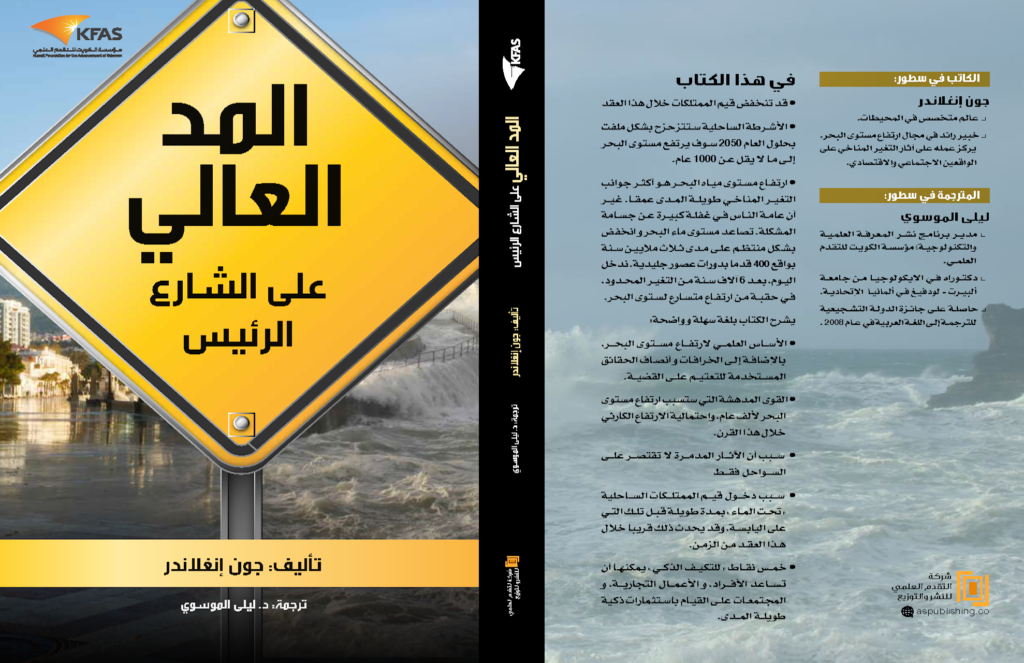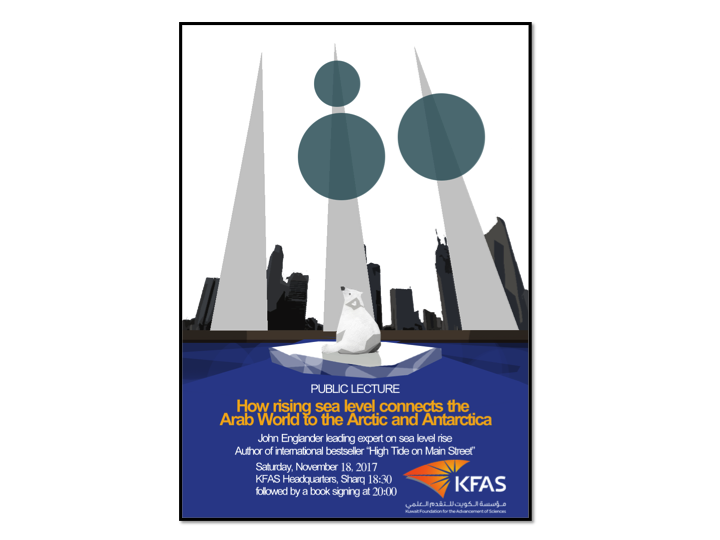3 Ways the Sea Connects Us All
Writing this from Kuwait, my first time in the region, gives me a somewhat new perspective. This small nation is at the northwest corner of the Arabian Gulf, at the juncture of Saudi Arabia and Iraq. Here in this warm equatorial region it might be easy to forget about the far distant, polar regions covered in snow and ice. Yet the melting now underway on Greenland, parts of Antarctica and glaciers elsewhere will surely reach this somewhat isolated body of the sea. The countries around the Arabian Gulf have low elevation and will flood the same as all coastal areas.

Furthermore, they used the Arab translation as a springboard for a science conference, Our Seas: Theories, Data, and Policies now underway where I am presenting. Also a few nights ago, there was a major public lecture to the local community as shown in the poster at the top of this article.
More than ever I see how the sea connects us in diverse and powerful ways. Here are my three perspectives of connection.
First, the sea knows no boundaries. From fisheries to pollution, the marine environment makes us all neighbors. That applies to the waters moving up the coast of North America starting in Mexico, then the United States and onto Canada, or here in the Arabian Gulf being the common ground for countries that do not always live in harmony. The marine medium requires awareness, thoughtful policy, and cooperation from regions all over the planet. The sea dominates this planet with more than seventy percent coverage. Life began in the sea and we are still in awe of its power.
Second, due to the special aspect of the sea connecting us in commerce and environmentally, it causes us to cooperate. I recall a meeting a decade ago with members of Congress (U.S.) who pointed out that even with countries like North Korea and Libya, with whom we did not have full diplomatic relations, that negotiations over maritime rules of trade “got us to the table” and got us to work together. In this sense the sea connects all maritime nations legally and diplomatically, in addition to the physical issues of marine resources and pollution. It demands awareness, cooperation, and rules between adjoining cities, states, and nations everywhere. Even nations that do not touch the ocean are fully dependent on marine transportation.
Third, there is this relatively new issue of rising sea level. After five thousand years of stability, sea level is rising again. It is hard for most to comprehend and accept that sea level will be some ten feet (three meters) higher, possibly this century. The actual height will depend on how warm and fast we allow the planet to get. Obviously the fact that the sea will be higher means that vast areas of real estate will go underwater.
No matter where we live on this blue planet, we will all be profoundly affected by the rising sea as it changes the coastlines. Understanding and adapting to rising sea level rise is also a strong connector. It has been very good to see people in this part of the world take up the torch and spread the word that we all must take this seriously and begin adaptation.
That awareness and effort should also cause us to take seriously the need to slow climate change on the most urgent basis possible. The science is clear.

